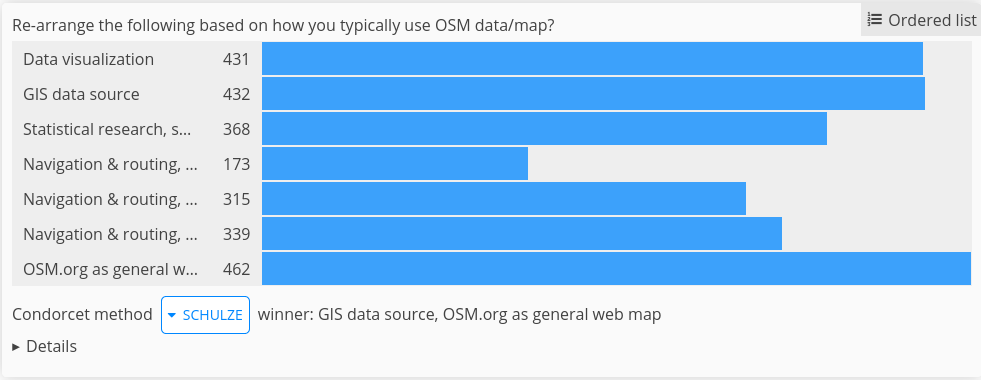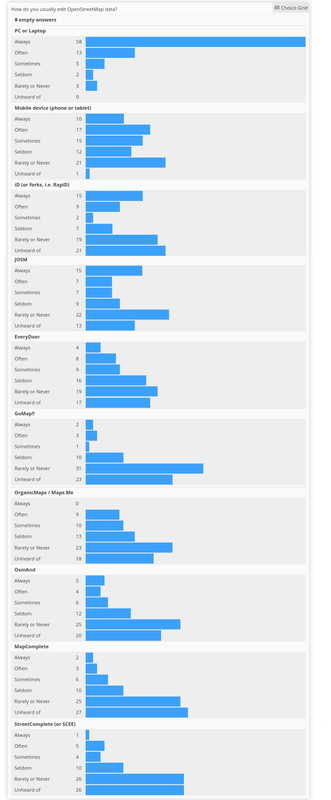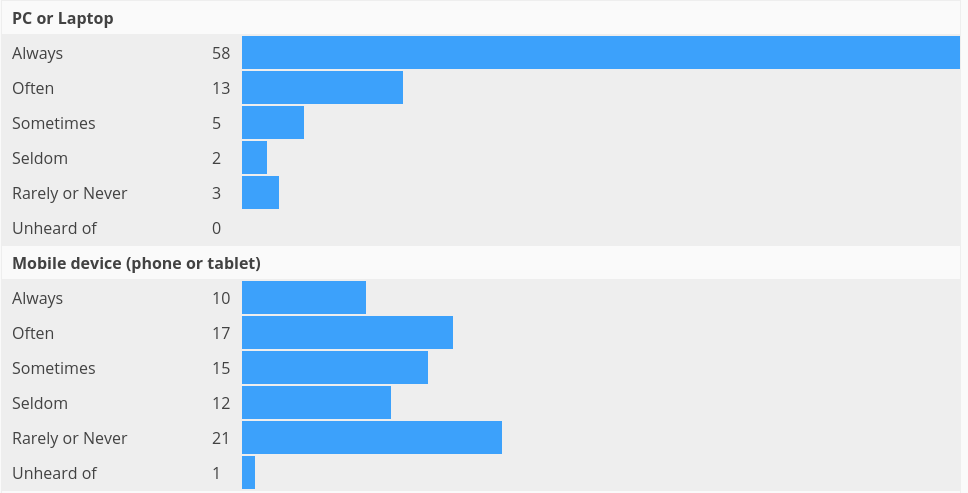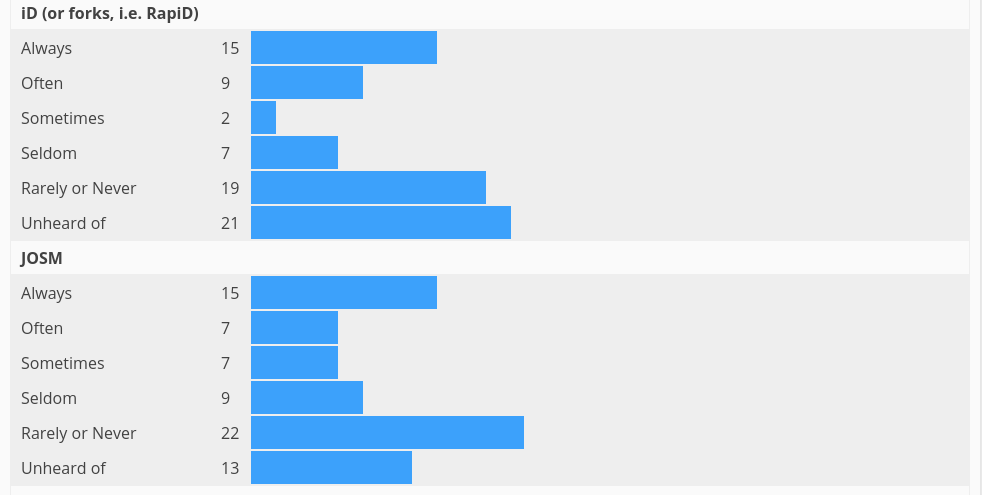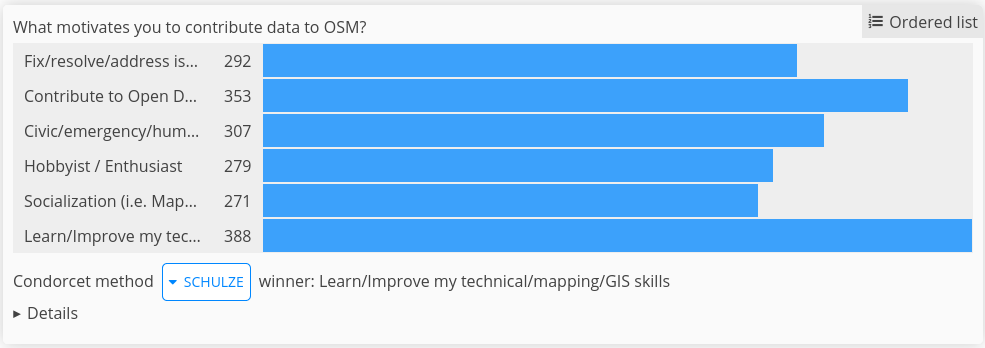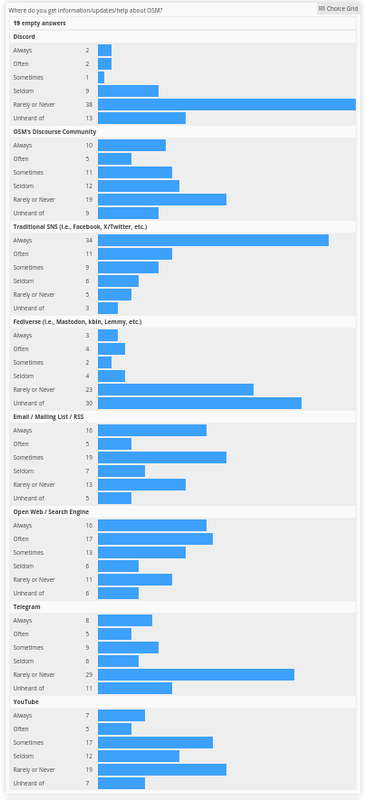Last quarter, a “getting to know you” survey was made available to the local OpenStreetMap (OSM) communities in the Philippines, to help us better understand the current state of the active contributor base of our community.
The original idea was to run it just for the membership of local YouthMapper Chapters (YMC), but eventually it was made available to anyone who contributes to OSM in the Philippines, here or abroad, regardless of citizenship or affiliations.
I’m sharing my observations from the responses made by the participants who participated in the survey, again, majority of whom comprised of local YMC respondents.
Click on the images, to open them in full resolution in a separate tab.
Are you physically present in the Philippines?
While 86% of the mappers reported that they are physically in the country, mappers coming from elsewhere at 14% was bigger than I expected.
Which of the following best describe your primary undertaking in the OSM project?
61% of respondents identify as “Editor/Mapper”, and it’s intriguing to see quite a number identify as “Advocate/Promoter.””
Re-arrange the following (community, project or brand) that you tend to associate more with.
The majority of participants identified with the “YouthMappers” brand, and a close second was “OpenStreetMap Philippines.”
This is probably more of an indication of participants associating with local, more familiar brands.
Re-arrange the following based on how you typically use OSM data/map
The users ranked the following as their top three choices: “OpenStreetMap.org as general web map”, and “GIS data source”, and “Data Visualization”
What’s your age?
The majority of the respondents are young contributors, and reflects the profile of the majority of the respondents: the YMCs.
Do you prefer any personal pronouns?
Most respondents don’t appear to prefer less of the traditional pronouns, but it’s gratifying to see numbers showing that the difference between those who chose “She” and “He” are not significant.
I suppose it can be said that Women are very active and engaged in the local communities.
How do you usually edit OpenStreetMap data?
This result was beguiling: 79% of the respondents reported either “Always” or “Often” using a PC/Laptop when editing OpenStreetMap. Meanwhile, from what I remember from previous global surveys of OSM respondents, it’s been reported that the majoirty of OSM contributors are editing on phones or other mobile devices.
The use of a PC/Laptop is also reflected in their choice (or familiarity) of editors. iD and JOSM are more familiar compared to any of the mobile editing apps mentioned in the survey, where most respondents answered “Rarely or Never”, or “Unheard of” when asked about these apps.
I suspect that the higher number of users who reported iD as “unheard of are simply unfamiliar with the name reference. It’s the default editor for OSM, and a big chunk of editors simply just start with them, and rarely refer to itself as “iD”.
In hindsight, an appropriate follow-up to this particular question should’ve been asking about the frequency of their OSM editing sessions.
Editing device: Computer vs Mobile
Favored OSM editor (Computer)
Favored OSM editor (Mobile)
EveryDoor takes the top prize, with OMaps and Osmand tied for second, for “Always/Often” category.
| Theme | Always / Often | Sometimes | Seldom | Rarely or Never | Unheard Of |
|---|---|---|---|---|---|
| EveryDoor | 12 | 9 | 16 | 19 | 17 |
| GoMap! | 5 | 1 | 10 | 31 | 23 |
| Organic Maps/Maps.Me | 9 | 10 | 13 | 23 | 18 |
| OsmAnd | 9 | 6 | 12 | 25 | 20 |
| MapComplete | 5 | 6 | 10 | 25 | 27 |
| StreetComplete/StreetComple_EE (SCEE) | 6 | 4 | 10 | 26 | 26 |
What motivates you to contribute data to OSM?
The top motivation is “Learn/Improve my technical/mapping/GIS skills”, followed by “Contribute to Open Data / Philosophy”
What hinders you from editing OSM more than you want to?
For 86% of respondents, their primary impediment is “Not enough free time,” followed by “Inexperience/Skill Level”.
Not having enough time (for anything, really) is a difficult issue to address, but the second choice is actionable, if the local communities or volunteers can find the time to create training or mentorship opportunities.
The next deterrent, “I don’t know what to map” could be addressed by improving how we communicate or promote on-going mapping initiatives, but also by matching them with the interest of the contributors. Low interest = low engagement, which is also reflected by the 11 respondents who chose “Uninteresting challenges/mapping projects”

How likely are you going to contribute/participate in the following OSM data improvement themes in the Philippines?
The top 5 themes, according to respondents: 1. Add/Review Placenames 2. Address Improvement 3. Barrier/Access Tagging 4. Photo-mapping 5. Review buildings with typhoon-damaged tag
Poll results
| Theme | 0¹ | 1 | 2² | 3 | 4³ |
|---|---|---|---|---|---|
| Address Improvement | 1 | 0 | 10 | 30 | 28 |
| Add/Review Placenames | 1 | 0 | 9 | 23 | 37 |
| Administrative boundaries mapping | 1 | 3 | 14 | 22 | 30 |
| Barrier/Access tagging | 0 | 2 | 10 | 28 | 29 |
| Bridge Mapping | 0 | 3 | 16 | 22 | 28 |
| Close/resolve open Notes | 1 | 6 | 25 | 21 | 15 |
| Fix Nominatim QA issues | 3 | 5 | 32 | 13 | 16 |
| PHL island/islet, nodes to polygons | 3 | 5 | 16 | 22 | 23 |
| Photomapping | 1 | 5 | 10 | 20 | 34 |
| Review buildings with typhoon-damaged tag | 2 | 5 | 9 | 20 | 33 |
¹ - “Not at all” ² - “Neutral” ³ - “Extremely likely”
Where do you get information/updates/help about OSM?
The majority of respondents get their OSM information and updates from traditional SNS, and the Open Web, using search engines.
OSM started 19 years ago (as of 2023). How long have you been actively contributing to the project?
Roughly one third of respondents have been mapping for 6 months or less, and another third has been mapping in OSM for 1-3 years.
That’s an interesting, rich mix of new and experienced mappers working in improving OpenStreetMap in the Philippines.
That’s the extent of the survey.
I look forward to the OSM-PH communities discussing this further, considering these insights, and adopting strategies to further improve our efforts to deepen our engagement within our communities.



